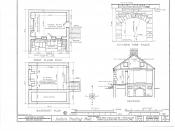The End of e? As commodity trading is being dominated more and more by technology, the Internet economy is becoming passÃÂé as it evolves into part of the mainstream global economy. Daniel Batts of Tullett & Tokyo Liberty plc reflects on the hype and explores the increasing focus on blending technology with existing old economy practices in order to establish effective hybrid broking services in the European Power markets.
From Pigeons to Electrons E-mail, e-commerce, e-business, e-marketplace, e-exchange, E*Trade, ePower, eSpeed "æ no one could have predicted the extent to which electronic trading has exploded into all markets. The future sometimes has a way of arriving unannounced. Not long ago when eMoney4nothing.com was lining our pockets and profits were an unnecessary evil, the only sound on everyone's lips was 'e'. No one can dispute the incredible Internet zeitgeist of the late 1990s and the meteoric rise of 'e' into mainstream thought, but now that reality has kicked-in and profits have again become de rigueur, is it the end of 'e'? 'E' is not a new phenomenon limited only to the last decade.
The basis for today's electronic networks, supporting price dissemination and trading has been around since Marco Polo was trading on the Great Silk Road. Then Baron Paul Julius von Reuter extended the idea of communicating trading data by establishing the carrier-pigeon share prices network of 1849. At that time it provided a practical and pragmatic approach for price discovery and distribution. Although telegraph was emerging as the new way forward, pigeons still provided a cost effective and widely available approach and gave a significant competitive advantage to those recipients who subscribed.
In World War I telegraph wires were used to order urgent supplies and provisions to the frontline using electronic messages providing us with one of the first...


